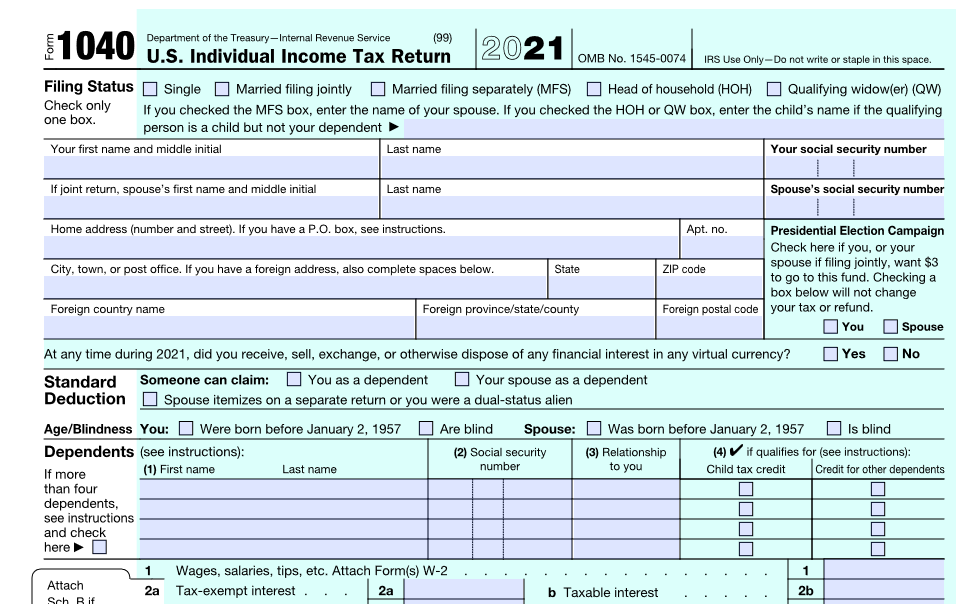Now that the 2022 tax season is open, the Internal Revenue Service reminds taxpayers to make sure they’ve got what they need before they file and to consider free resources available to help them get organized.
This news release is part of a series called the Tax Time Guide, a resource to help taxpayers file an accurate tax return. Additional help is available at IRS.gov or in Publication 17, Your Federal Income Tax.
Don’t file before ready
While taxpayers should not file late, they also should not file prematurely. People who file before they receive all the proper tax reporting documents risk making a mistake that may lead to processing delays.
Typically, year-end forms start arriving by mail – or are available online – in January. Taxpayers should review them carefully. If any of the information shown is inaccurate or not available, taxpayers should contact the payer right away for a correction or to ensure they have their current mailing or email address.
New this year, the IRS sent Letter 6419, Advance Child Tax Credit Reconciliation, in January 2022 to help individuals reconcile and receive the full amount of their 2021 Child Tax Credit. This letter includes the total amount of the 2021 advance Child Tax Credit payments issued and the number of qualifying children used to calculate their advance payments. People need this important information to accurately claim the other half of the 2021 Child Tax Credit when filing their 2021 tax return and prevent delays in processing. The IRS reminds people to check this information carefully.
Most eligible people were already issued their third Economic Impact Payment and won’t include any information about it when they file. However, people who didn’t qualify for a third payment or did not receive the full amount may be eligible for the 2021 Recovery Rebate Credit based on their 2021 tax situation. They will need the total amount of their third Economic Impact Payment to file an accurate tax return to avoid a processing delay. Taxpayers can sign into their IRS Online Account to view the total amount of the third-round Economic Impact Payment or wait to receive IRS Letter 6475.
Individuals not required to file must file a tax return to claim important tax credits
The IRS strongly encourages individuals who are not required to file a tax return to file one this season to claim potentially thousands of dollars in tax credits. By filing a tax return, individuals could claim:
- The Recovery Rebate Credit to receive any remaining 2021 stimulus payments that they might not have received (for example, if they added a new child or other dependent in 2021);
- The remaining Child Tax Credit for which they are eligible, including any monthly payments that they might not have received (for example, if they added a new qualifying child in 2021); and
- The Earned Income Tax Credit, the federal government’s largest refundable tax credit for low- to moderate-income families (the amount of which has been nearly tripled for filers without children).
View IRS account information online
Individuals can use their IRS Online Account to securely access information about their federal tax account, including payments, tax records and more.
To help with filing a return, individuals can view:
- The total amounts of Economic Impact Payments issued for tax year 2021
- The total amount of advance Child Tax Credit payments
- Their adjusted gross income from their last tax return
- The total of any estimated tax payments they made, and refunds applied as a credit
They can also now make and track payments and manage communication preferences, including the option to go paperless and request email notifications for certain notices available online. Taxpayers are encouraged to register for an online account, if they haven’t already, or sign in to access this information and explore these new features.
Important 2021 Tax Documents
Organized tax records make preparing a complete and accurate tax return easier and may help taxpayers find overlooked deductions or credits.
Taxpayers should wait to file until they have all their supporting income statements including but not limited to:
- Forms W-2 from employer(s)
- Forms 1099 from banks, issuing agencies and other payers including unemployment compensation, dividends and distributions from a pension, annuity or retirement plan
- Form 1099-K, 1099-Misc, W-2 or other income statement if they worked in the gig economy
- Form 1099-INT if they received interest payments
- Other income documents and records reporting virtual or crypto currency transactions
- Form 1095-A, Health Insurance Marketplace Statement, to reconcile advance Premium Tax Credits for Marketplace coverage
- Letter 6419, 2021 Total advance Child Tax Credit Payments to reconcile advance Child Tax Credit payments
- Letter 6475, 2021 Economic Impact Payment, to determine eligibility to claim the Recovery Rebate Credit.
Thanks for reading CPA Practice Advisor!
Subscribe Already registered? Log In
Need more information? Read the FAQs
Tags: Digital Currency




